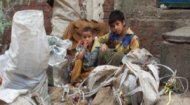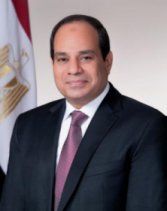|
Egypt Profile |
Egypt Profile |
Egypt Profile | Egypt Profile |
For information, a video and background history about Maghreb where there is some volunteer work.
More >
Read all the latest news and current events from Egypt online in our Egyptian profile news page. Updated daily.
More >

|
Mohamed Morsi, an Islamist affiliated with the Muslim Brotherhood organisation, was then elected president on 24th June 2012 however he was removed from office in a further coup d'etat on 3rd July 2013 by, amongst others, General Abdel Fattah el-Sisi. The following year el-Sisi retired from his military career and announced he would run for office in the 2014 presidential election. which saw him win with a 97% landslide victory in the vote. Under President el-Sisi's leadership (below), Egypt has focused on strengthening state institutions and ensuring security, which is often presented as crucial for national development and for attracting foreign investment, essential for the nation's progress and the well-being of its large population. This emphasis on maintaining a secure environment is paramount in its strategic planning and governance.
Egypt's economic profile is diverse but faces ongoing challenges. Key sectors include tourism, a vital source of foreign currency, particularly around its ancient sites and Red Sea resorts. The Suez Canal remains a cornerstone of global trade and a significant revenue generator. Agriculture, especially along the fertile Nile Delta, continues to be a crucial sector, while recent discoveries of natural gas offer new avenues for growth and energy independence. Despite these assets, the economy contends with issues such as inflation, managing a rapidly growing population, and the need for structural reforms to foster long-term economic stability. The government has embarked on ambitious infrastructure projects and comprehensive economic reforms aimed at boosting growth and attracting further investment. Egypt's social profile is richly woven with tradition, religion (predominantly Islam), and strong family ties. Overall, Egypt is a predominantly Sunni Muslim country with an estimated 85-90% of its population identifying as Muslim compared to just 10-15% as Coptic Christians. Cairo, a sprawling metropolis, exemplifies the vibrant and sometimes chaotic rhythm of daily life for millions, blending ancient markets with modern shopping malls. Outside the urban centres, particularly in rural areas along the Nile, life often adheres to more traditional patterns, centred around agriculture and close-knit communities. Egyptians are known for their hospitality, resilience, and a deep sense of national identity. With a population of 118.4 million (2025) (representing a significant rise from the estimated 3 million when Napoleon invaded the country in 1798), Egypt is in 100th place out of 193 countries and territories in 2025 when ranked in terms of life expectancy, literacy, access to knowledge and the living standards of a country. According to the World Bank, 33.5% of Egypt's people live below the poverty line although, as ever, there are vast discrepancies in wealth distribution. Most of that population lives along the Nile (notably Cairo and Alexandria), within the Delta and near the Suez Canal with the remaining, known as the fellahin, carving out a life on the land in more rural areas where the men, with their long tunics (djellabas), can be seen working the land with age-old implements such as the fas (hoe) and minjal (sickle) and, very occasionally, modern tractors. It is in these rual areas the power of the state is less apparent. For more about Egypt, please consult our Egyptian profile pages.  |









 Egypt however faces significant economic and political challenges. While the government has made efforts to stabilize the economy, including reforms supported by international institutions like the IMF, it faces persistent issues like high inflation and debt. Politically, Egypt is considered to have a restrictive environment, and security forces have responded forcefully to protests. As such, there are concerns about the government's commitment to democratic reforms and the potential for social unrest.
Egypt however faces significant economic and political challenges. While the government has made efforts to stabilize the economy, including reforms supported by international institutions like the IMF, it faces persistent issues like high inflation and debt. Politically, Egypt is considered to have a restrictive environment, and security forces have responded forcefully to protests. As such, there are concerns about the government's commitment to democratic reforms and the potential for social unrest.


